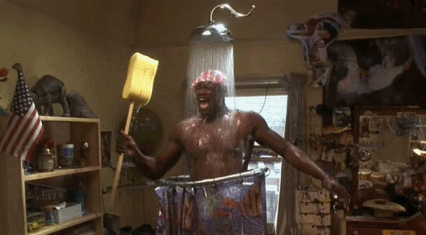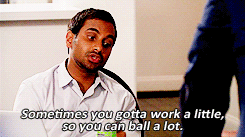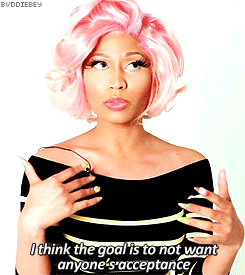Also written by Jessica Jordano.
What’s with college students and stress these days? In 2014, a Pennsylvania State University study found that anxiety has become the leading mental health issue facing college students. With these numbers rising, college faculty can’t hire enough therapists to facilitate the number of students in need of some talk time. Though treating yourself like you treat others sounds great, many students resort to throwing money at emotional issues by binge eating and drinking. These temporary fixes won’t help you, so clearly it’s time for a more viable solution. Ever heard of self care?
Self-care can help prevent burnout, whether it’s in our personal lives or our academic lives. “Everyone should practice self-care, it’s important to give yourself some love to make it through the day. Self-care is hard but small steps can lead to great results,” said Champlain College junior Emily Kueppers. Don’t think about it as a reward, but instead something that everyone needs to do. Better yet, it doesn’t need to cost a cent.
Stressed Out AF? Check out These Simple Tricks to Practice Self Care.
1. Go outside

A lack of sunlight can result in a drop in serotonin, a hormone that affects your mood. By going outside, you stimulate your brain to make more serotonin. “For me, a healthy mind is more important than a healthy body, even though they are often correlated,” said American University sophomore Albert Fuji. Walking (you don’t have to run if you don’t want to) and other forms of exercise like hula-hooping increase the levels of endorphins in your body. As Elle Woods said, “Exercise gives you endorphins. Endorphins make you happy.”
2. Spend a day tech-free

As the first generation who grew up with technology in our houses, we’re addicted to the Internet and social media. However, constantly using technology puts you at a higher risk for mental health problems, sleep issues and stress. We easily feel jealous of other people’s posts on social media, and we focus way too much on taking our next Insta-worthy selfie instead of enjoying a lovely day. By taking a day (or even an hour) away from technology, we can connect more with those around us. Everyone needs personal connections, yet all the FaceTiming or Facebook stalking in the world can’t provide enough of it.
3. Sleep like you mean it

Sleep lets our bodies to heal themselves, and when you don’t get enough, it affects every aspect of your life. Not sleeping enough can kill your sex drive, contribute to symptoms of depression, age your skin and make you gain weight. College students worry about enough without dealing with aging, weight gain (besides the freshman 15) and a low libido. Try not to set an alarm one day a week. Alarms are jarring and stressful, and you should be doing everything you can to decrease the stress in your life. Pro tip: If you always wake up to your alarm, that means you need more sleep.
4. Sing along to your favorite album

Like walking, singing is a form of exercise that releases endorphins (which make you happy). This aerobic activity increases the oxygen in your blood, which can improve your mood. If you’re dancing and singing around your room, then you’re giving your brain a break from all your stress. You’re likely breathing more deeply if you’re singing, and that’s a typical anxiety reducing technique.
5. Drink more water

Did you know that even slight dehydration could negatively impact your mood? I know that when I don’t drink enough water, I tend to get a migraine, which definitely makes me feel worse. Water improves your skin, keeps you energized and makes you more alert. Drinking more water can only help you and make your day easier and better. Keep in mind that coffee doesn’t count, so step away from the Starbucks.
6. Write out your thoughts

We tend to keep our thoughts and feelings bottled up and locked away instead of releasing them. This can result in a buildup of feelings that leads to an episode. If you write out your thoughts (especially the negative ones) for even just 10 minutes, that helps you release some of your stress and allows you to focus on other things. “I think everyone should participate in self-care because it can help you figure out the best ways to express how you feel. While life can move quickly, self-care lets you stop and reflect,” said AU sophomore Emily Hall. Letting things go feels difficult when you’re always on the move, so taking a quick break to write the thoughts out has a dual purpose of forcing you to slow down and allowing you to release negative thoughts.
7. Watch a funny YouTube video

The phrase “laughter is the best medicine” is no lie. When you watch a funny YouTube video, you boost your heart rate and increase your body’s oxygen flow. Like exercising, laughter releases immense amounts of stress. Watching cute videos can also help because cute things trigger a release of dopamine to our brain’s pleasure center. My favorite thing to do when feeling down includes watching videos of Ellen with children or look at photos of President Obama with babies.
8. Give yourself a pat on the back

Society makes us feel guilty for not being productive all the time, but for people with anxiety or depression, showering or getting dressed is productive. “I always try to do one good thing a day or someone else, whether that’s holding opening a door, helping out with a project or just being friendly to a stranger. When I do things for others, it helps me feel good about myself,” said Chapman University graduate student Paula Pearl. You’ll feel better if you stop beating yourself up for doing the best you can and allow yourself to be proud of all of your accomplishments on a harder day.
9. Take a shower

When I’m sick, my parents tell me to go take a shower to get my body feeling better—and taking a shower helps your mental stressors too. A shower can relieve tension and help you fall asleep. Personally, I love to take a 15-minute hot shower in a dark room and just allow all my thoughts to float away. Showering can be a sort of meditation for some people and allow you to clear your mind of stress.
10. Do something creative

Many of us enjoyed coloring or doing a puzzle when as kids, even if we didn’t understand why. Doing something creative releases stress and bottled up feelings we haven’t resolved otherwise. It gives you time to reflect where you can think and mentally work out a problem in your life, which can make you happier and less anxious. Self-care doesn’t mean ignoring your problems, it means regularly taking the time to promote your health and well-being. Take control of your life and starting making an effort to take care of number one.
11. Planner
Disclaimer: Planners work for more than the type A personalities of this world. As a fellow procrastinator, over-planner and overall forgetful person, I use a planner for a variety of purposes, from remembering class schedules during the first week of school to providing a haven for doodles during geology class. Some potential resources a planner can provide include grocery lists, lunch dates, genius ideas that you come across on a daily basis and an artistic medium to doodle and write. Not only will your life feel more organized, but planners offer a great creative outlet within and without the margins in the midst of your hectic life.
12. Learn a New Hobby

You will never have more time or more resources to learn how to play piano, start blogging, pick up ultimate Frisbee or audition for an a cappella group than right now. Your hobby should offer you a chance to decompress. Matt Grimo, a graduating senior at George Washington University, said that although self-care methods should be based on the situation, he finds peace in reading, watching television or playing video games. “[Those activites] are my go-to self care things since they really get me out of my own head and put me into a completely different space,” Grimo said. In the midst of all the responsibilities of college, from internship applications to spending time with friends, a new hobby will help you remember what you love.
13. Eat Your Favorite Food

Eating your favorite food presses pause on your hectic life. Rewarding yourself after completing a difficult run, finishing your economics exam or winning a soccer game gives you the pat on the back and the “yum” in your stomach that you need. Don’t forget to take a minute and actually enjoy each bite. I gravitate towards the box of double stuff Oreos after pressing “send” on an internship application. Making the extra effort to stop and say good job to yourself will ultimately help you in the long-run.
14. Go on an Adventure

Exams, essays or extracurriculars: The small bricks in college life that sometimes build up and use more time and energy than they should. Sometimes when this wall gets overwhelming, you have to vault over it and see what adventure you can find beyond it. Spend a Saturday exploring the nearest city, touring a museum, or finding new restaurants, coffee destinations or shops. Exploring a new destination or experiencing a new adventure will remind you to put all your priorities in perspective.
15. Work Hard

The day before the AP Exam for English Literature, my teacher said one adage that always stuck with me: “Don’t be nervous, just be prepared.” And after a few years in college, I realized that she was right. Self care sometimes means pushing yourself to work hard and then work harder. According to Grimo, sometimes the best way to self-care is to just check things off your lengthy to-do list. “I know that it’s better for myself/taking care of myself in the long run if I fill out that application or write that thing sooner rather than later.”
I’ve learned that when I don’t put my best foot forward, I worry for the day that lies ahead. However, when I make myself proud by working hard and putting in as much effort as possible, I come out content no matter how the game turns out or how the exam goes, because I did everything I could. So if you want to have peace of mind, turn your checkboxes into checkmarks as you plow through your list of goals.
16. Dance

As someone who dances with without skill but with commitment, I know how dancing to your favorite tune serves as a huge stress reliever. Turn on your iHome speakers in your dorm room, play some Shakira and have a quick dance party for a study break with friends. Remember to laugh, smile and not take life too seriously. Your final shouldn’t take priority over your mental health.
17. Call Your Mom

When you feel an emotional crisis coming on, call your mom or anyone that you can call a support system. Whoever you call, talking out your emotions forces you to sift through the memos and alerts your brain has posted all over. Regroup and get some advice before you miss the deadline your brain has set to get your life together.
18. Take Alone Time

College teaches you the important skill of being alone. You have newfound independence as a college student, and along with that comes a newfound loneliness. “[Start] small, give yourself 15 minutes a day to do something that is just for you,” said rising GW senior Val Barrera Vasco. “You will find days where you can give yourself two hours and days when you don’t get a chance to stop and breathe, but everyday is a new opportunity.”
Unlike high school, college doesn’t trap you in the same four walls with the same people on a daily basis for four years. And although alone time can get lonely, it also rejuvenates you, because you’re taking the time to catch up with yourself. Just like catching up with a friend, you should designate time to find out how you are doing, what’s going on in your life and what your plans you have. You can’t leave your own messages to yourself on read.
19. Keep Positive People in Your Life

My dad always told me that friendships should be a “winning percentage.” If a friend contributes more than 50 percent positivity to your life, then your relationship is a winning percentage. You should keep this person in your life. Conversely, if you find yourself fatigued, distressed or sad with a friend more than you are happy, keep your distance. You deserve to have people in your life who bring you up, not pull you down.
20. Put Yourself First

According to Vasco, the key to self-care is putting your health first, above any other priority. “The hardest part will not be finding something you enjoy but rather rewiring your brain to allow yourself to make your health paramount,” Vasco said. “We all know if we enjoy running, swimming, baking or painting. What we don’t usually know is how to justify taking an hour out of our days to do the things we enjoy.” Who doesn’t relate to this? “We fill up our time with homework, work and other obligations, and because these things are also important to us and we see others doing the same thing, we don’t force ourselves to set time aside to do things that are simply for our satisfaction.”
Always do exactly what you want to do. If you don’t want to go to a party, despite your friends nagging you to go, don’t go. If you don’t want to eat at that restaurant, suggest a different one. No friend, professor, significant other or enemy should make you do anything you don’t want to do.
21. Do the Thing That Scares You

Thinking about cutting off all your hair? Maybe traveling across the country? Or asking out that guy in your econ class? Take advice from me and Nike: Just do it. Take care of yourself by taking care of your fears, not by nursing them and validating them, but by throwing them out the window (preferably from a high-story window; bonus points if you fear heights). You will take pride in conquering that fear.
*Updated on May 30, 2017 by Jessica Jordano to include self care tips 11-21.




















